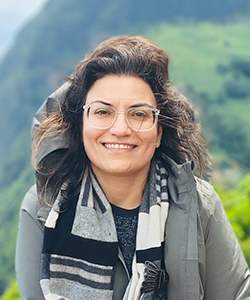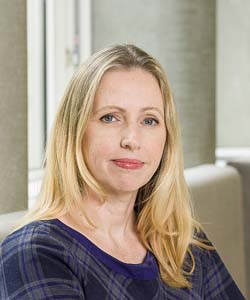(Hybrid) Child Language Acquisition
Presenters: Zara Harmon, Caroline Rowland
Offered virtuallyHBMRA1
This workshop provides an introduction to topics on the acquisition of a first language by infants and children. Language acquisition researchers–linguists, psychologists, psycholinguists, computational scientists and neuroscientists–work together to discover how children learn language and why humans are the only known species capable of learning language. In this workshop, we will discuss how diverse methodologies address the main theoretical questions of linguistic theory aimed at understanding how children learn language. We will address questions such as: how children learn to associate words with their meanings; how they learn to combine these words into grammatical sentences; what factors play a role in this learning process; what changes in the brain during development, and why some children are much quicker to learn to speak than others. To study these questions, we will survey influential and cutting-edge experimental methods, corpus-based approaches, and computational modelling and discuss how these methods test hypotheses related to language development.
Keywords: Computational Modeling, Learning, Morphosyntax, Lexicon, Corpus Linguistics, Communicative Efficiency, Experimental Methods, First Language Acquisition, Production, Productivity, Semantics
Room STB 245, Mondays and Thursdays, July 7-August 7, 9:00am - 10:20am (in person and virtually)
Mondays and Thursdays
Presenters

Max Planck Institute for Psycholinguistics
I am a postdoctoral researcher at the Max Planck Institute for Psycholinguistics (MPI) Language Development Department. I am particularly interested in how prediction, planning, and overgeneralization errors during development help children build representations that organize sequences of words. These representations support the learning of highly familiar sequences as well as the ability to deal with novel contexts, suggesting that both experience and powerful learning mechanisms contribute to their development. I use corpus studies, computational modeling, and experiments to better understand how these representations are developed. I received my PhD in Linguistics from the University of Oregon in 2019. My dissertation examines how high accessibility of linguistic forms in language production leads to the extension of these forms to novel contexts, providing an explanation for semantic (over-)extension of high-frequency forms in language acquisition and language use. Prior to MPI, I was a postdoctoral research associate at the University of Maryland Institute for Advanced Computer Studies (UMIACS) and a postdoc affiliate at the Department of Linguistics and the program in Neuroscience and Cognitive Science. Following UMD, I joined the University of Iowa Department of Communication Sciences and Disorders, conducting eye-tracking experiments as part of on-going collaborations.

MPI for Psycholinguistics
Caroline Rowland is Director of the Language Development Department at the Max Planck Institute for Psycholinguistics in Nijmegen, Professor of First Language Acquisition at Radboud University. Her research focuses on how children learn to communicate with language, how the developing brain supports this process, and how it is affected by cross-linguistic, cultural and individual variation. She takes a multiple methods approach - experimental work, naturalistic data analysis and computer modelling – to test the predictions of different models of the child’s learning mechanism.
Room STB 245, Mondays and Thursdays, July 7-August 7, 9:00am - 10:20am (in person and virtually)
Mondays and Thursdays
